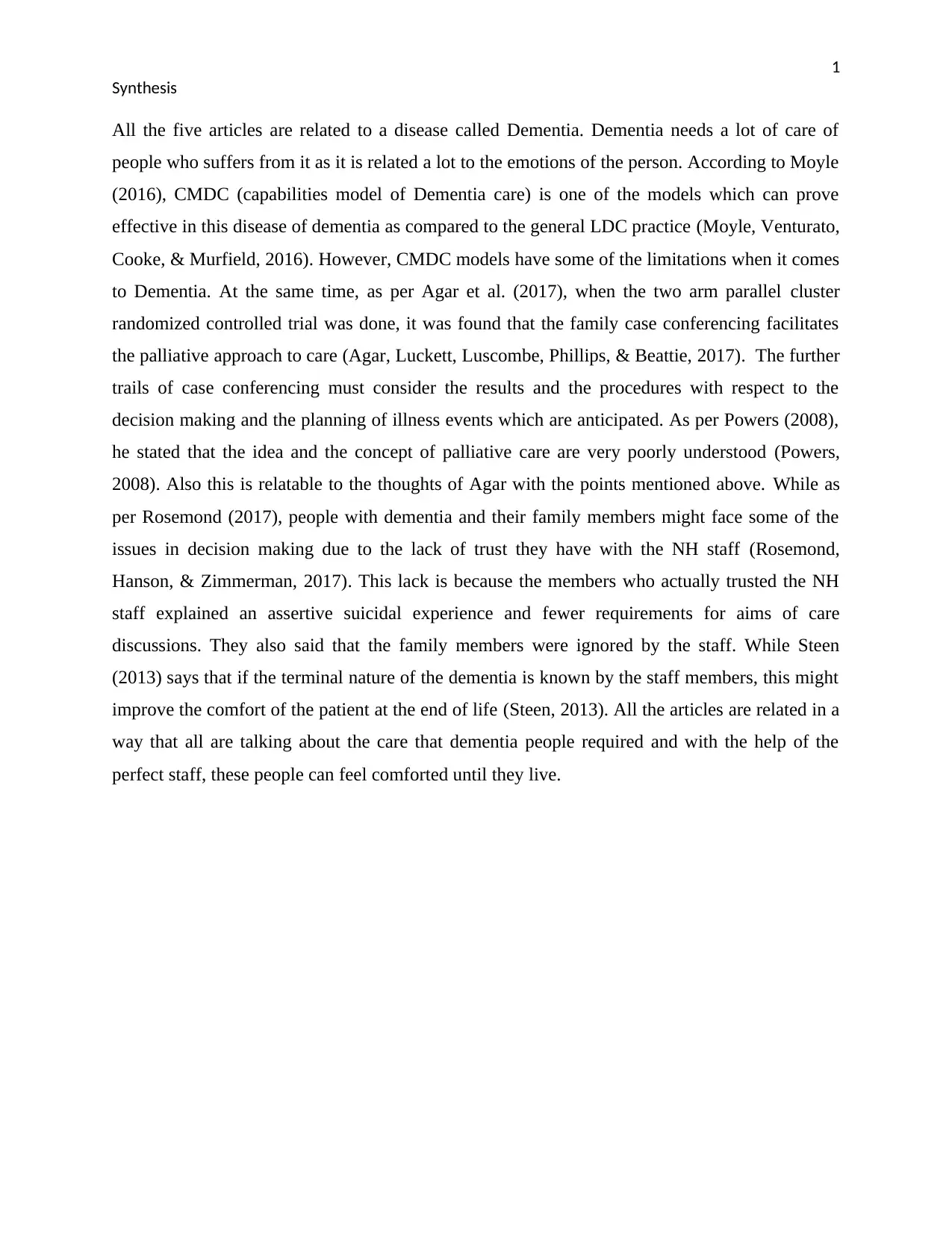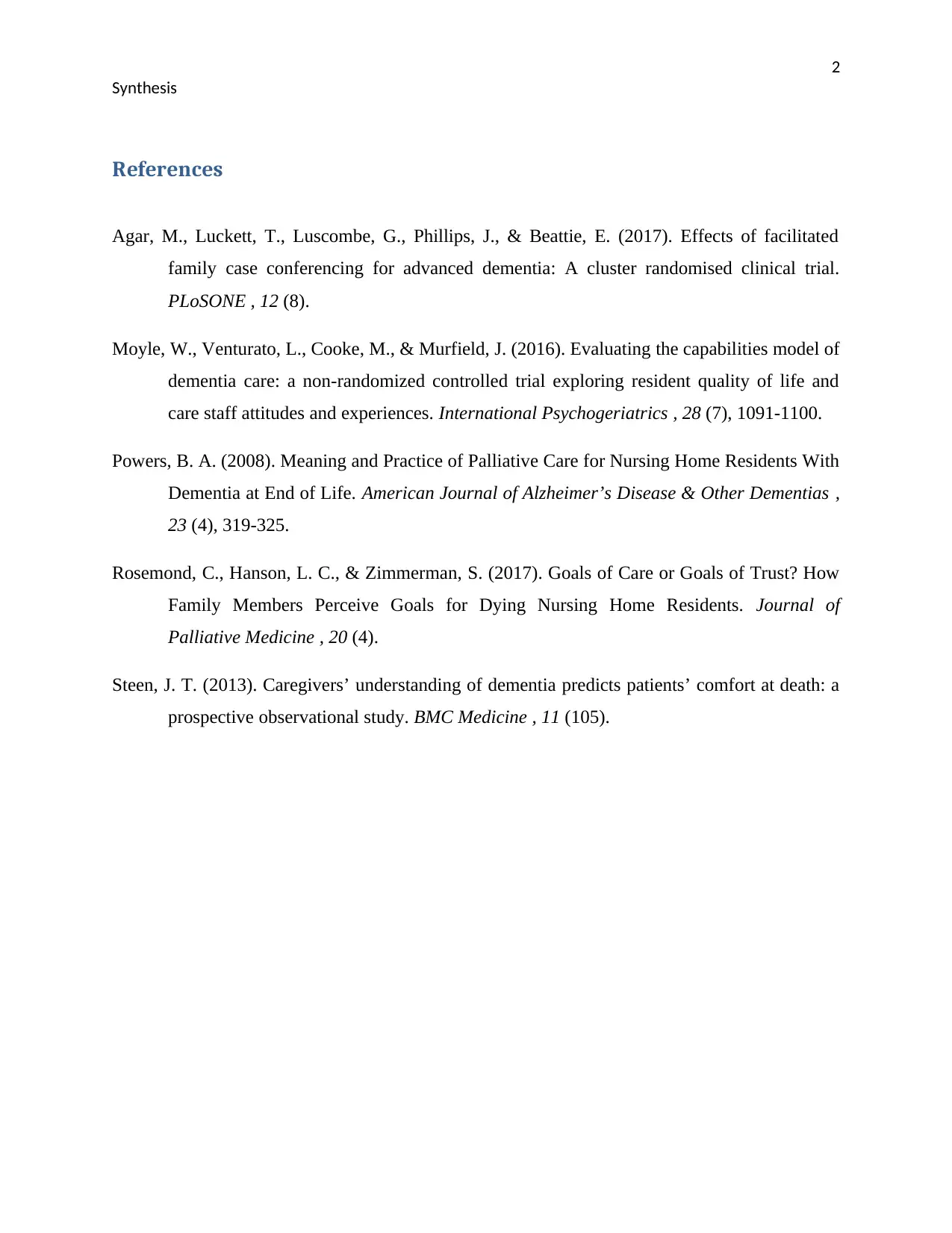Dementia Care: Analysis of Evidence and Synthesis of Five Articles
VerifiedAdded on 2023/06/03
|3
|631
|103
Report
AI Summary
This report provides a synthesis of five articles focused on dementia care, examining various aspects of treatment and patient well-being. The articles discuss the effectiveness of the Capabilities Model of Dementia Care (CMDC) compared to standard practices, highlighting its limitations. The study also analyzed the impact of family case conferencing in facilitating palliative care approaches for advanced dementia patients, revealing positive outcomes and the need for further research. Other articles explore the challenges in decision-making faced by individuals with dementia and their families, particularly concerning trust in nursing home staff. The report also emphasizes the importance of staff understanding the terminal nature of dementia to improve patient comfort at the end of life, ultimately advocating for comprehensive care strategies that address the emotional and physical needs of individuals with dementia and their families. The report also includes an evidence table summarizing key findings, sample sizes, and limitations of the studies.
1 out of 3





![[object Object]](/_next/static/media/star-bottom.7253800d.svg)